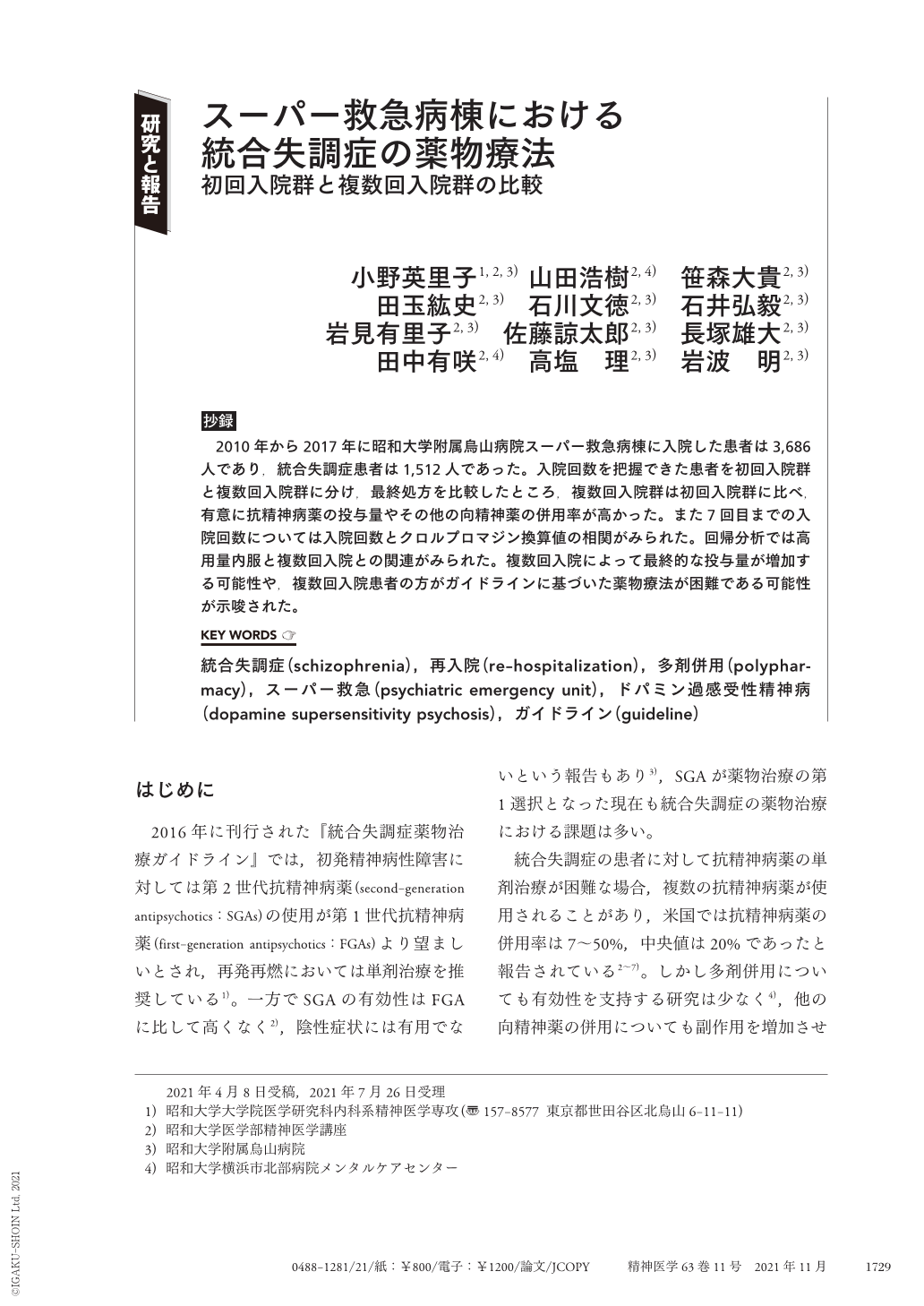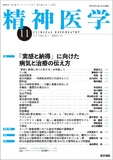Japanese
English
- 有料閲覧
- Abstract 文献概要
- 1ページ目 Look Inside
- 参考文献 Reference
抄録 2010年から2017年に昭和大学附属烏山病院スーパー救急病棟に入院した患者は3,686人であり,統合失調症患者は1,512人であった。入院回数を把握できた患者を初回入院群と複数回入院群に分け,最終処方を比較したところ,複数回入院群は初回入院群に比べ,有意に抗精神病薬の投与量やその他の向精神薬の併用率が高かった。また7回目までの入院回数については入院回数とクロルプロマジン換算値の相関がみられた。回帰分析では高用量内服と複数回入院との関連がみられた。複数回入院によって最終的な投与量が増加する可能性や,複数回入院患者の方がガイドラインに基づいた薬物療法が困難である可能性が示唆された。
We investigated the medical records of 3686 patients admitted to the psychiatric emergency units of the Showa University Karasuyama Hospital from 2010 to 2017. 1512 patients were schizophrenia. Patients for whom we were able to determine the number of hospitalizations were divided into the initial admission group and the multiple admission group and the medication content of the last prescription was compared. The multiple admission group had a significantly higher dosage of antipsychotics and concomitant rate of other psychotropic drugs than the initial admission group. There was also a correlation between the number of hospitalizations and chlorpromazine equivalent for the number of hospitalizations up to the seventh hospitalization. Regression analysis showed that the high-dose group was associated with multiple hospitalizations. It was suggested that multiple hospitalizations may increase the final dose and that patients with multiple hospitalizations may have more difficulty with guideline-based pharmacotherapy.

Copyright © 2021, Igaku-Shoin Ltd. All rights reserved.


